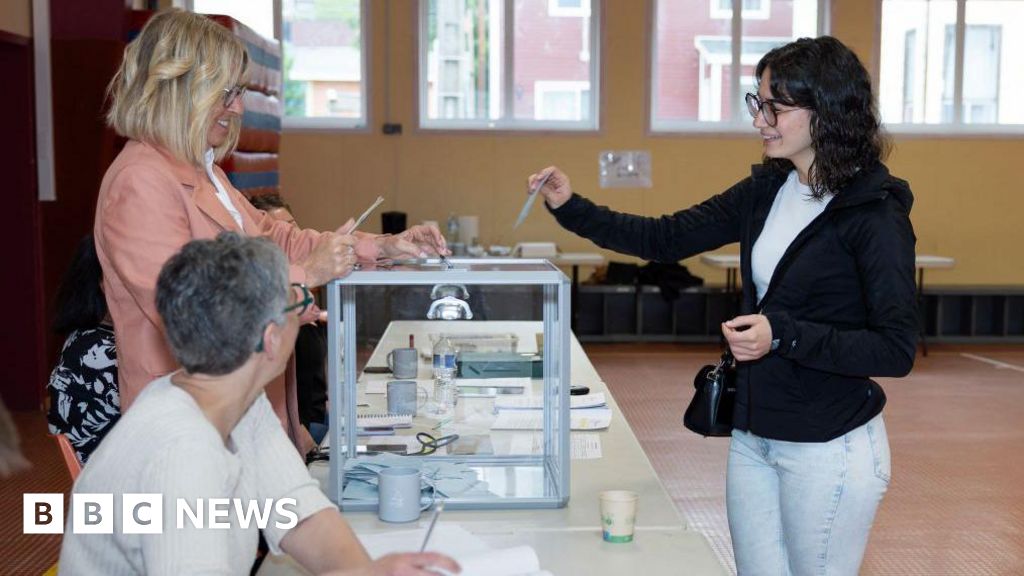Postal vote delays: UK election organisers say rules should be changed | General election 2024
” frameBorder=”0″ class=”dcr-ivsjvk”>
In a report it issued last year outlining comprehensive changes, it also called for “absent voting arrangements fit for the 21st century”, including the option to vote online.
A record 10 million people registered for a postal vote this year, up 20% on 2019, the AEA revealed.
Of those, 1.3 million applied for a postal vote between the day Rishi Sunak called the election and the deadline for postal vote applications, piling the pressure on councils, which must match individual voters with the correct ballot paper, personalised envelopes and instruction sheets.
Among those complaining of losing their vote today are several dual national British-EU citizens, who have been mistakenly stripped of their right to vote in a general election as a British passport holder.
Simona Giordano, a British-Italian professor at the University of Manchester, said the first she knew about her disenfranchisement was when her son’s postal ballot showed up but hers did not.
“I am quite distressed that one of the most important civil rights I have is being violated. But I am also very concerned, because I have been repeatedly told in the last few days that this is a ‘system error’; it is therefore likely to affect others,” she said.
A spokesperson for the acting returning officer for Manchester said it sympathised with Giordano and understood her frustration but “that due to a unique combination of circumstances she will not be able to vote in this election”.
Mathias Lejeune, a Belgian in the UK for 16 years who became a British citizen after Brexit, said he turned up at the polling station on Thursday morning to be told he could not vote.
Earlier this week, Sir Keir Starmer called on the government to address the failure to get postal ballot packs out on time. But the AEA says it is the system that is at fault.
after newsletter promotion
Lock said earlier deadlines for absent voting applications would be “better” and help councils get voting packs out in the post earlier, including those overseas.
Under existing laws, elections can be called a minimum of 25 days before polling day. The AEA says this is too tight and should be extended to 30 days as is the case for the London mayoral and greater London authority elections.
It also wants powers to intervene when needed to avert disenfranchisement, allowing those who did not receive a postal vote the opportunity to get a friend, family member or trusted person to cast their vote on election day.
Lock said: “Apart from issuing a replacement postal vote pack, the law prevents returning officers from helping electors whose postal vote doesn’t arrive. We want emergency proxy provision to be expanded to include electors who have not received their postal vote.”
AEA says these problems could be swept away if the timetable for postal vote applications was also changed. “Closing postal vote applications 16 working days before a poll, rather than the current 11, would increase capacity to process, print and post out ballot packs and, crucially, give voters more time to post them back,” said Lock.
The number of people seeking postal votes has rocketed in recent years, with 10 million this year and 8 million in 2019 compared with 1.7 million in 2010 and about 1 million in the decades stretching back to the 1970s.
Data from the House of Commons shows that the “turnout” of postal voters is exceptionally high, at more than 83% in the past four last elections, representing 20% of the total number of valid votes cast.
-
Live General election live: party leaders join millions across the UK casting their votes
-

Boundary changes may reduce access to MPs in UK’s poorest areas, research finds
-

Britons living overseas for over 15 years likely to win voting right before next election
-

What time will we know who won? Hour-by-hour guide to election night
-

More forms of ID may be allowed for UK voters after damning report
-

What photo ID do I need to vote in the 2024 UK general election?
-

Did that really happen? 14 years of chaotic Tory government
-

Hundreds of thousands face exclusion over voter ID laws, UK watchdog says
-

Voter ID in England led to racial and disability discrimination, report finds
-

From a soaked Sunak to Farage taking a punch: the election campaign in pictures
Source link




